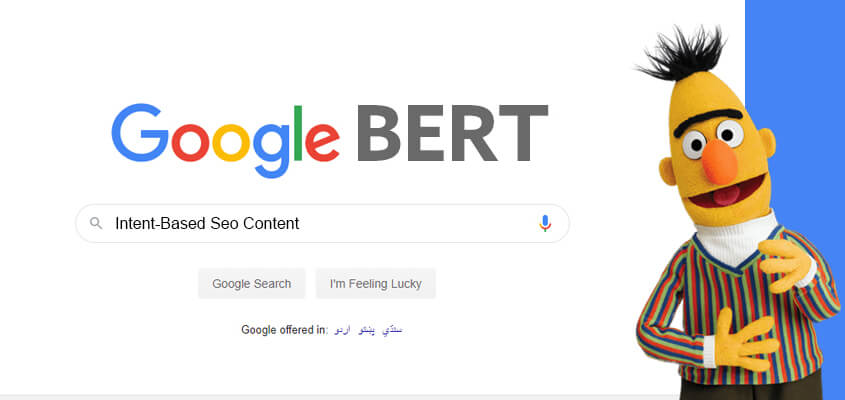-
Get Cloud GPU Server - Register Now!
Toggle navigation

The year 2019 has gone with 2020 ringing in, and SEO experts working to boost website rankings know how much has changed in the past couple of years. Google has rolled out several algorithm updates such as Penguin, Panda, RankBrain, Hummingbird, and of course BERT. It means SEO is evolving at a fast rate and for the good.
In order to make your website rank in the SERPs, you will need to include keywords (KWs) in all the right places such as your meta description, title tag, H1, and of course in the content. You can also consult the best SEO companies in India. Then, Google algorithms have changed and matured over the years.
According to an article published on https://www.huffpost.com, SEO is not your business expense but like an investment. You need to adhere to Google rules and guidelines and implement the right optimization strategies to realize that SEO is not that expensive, as it seems for many marketers.
Today, you cannot rank in the SERPs by tricking Google or stuffing your web copy, articles, and blogs with KWs. You need to offer a pleasant experience to your website visitors to rank higher in the search results. Then, how are going to use the KWs or search phrases in your content? To get your answers, keep reading this article.
As far as SEO-friendly content is concerned, it is that information that answers your visitors’ questions. That is the first thing you need to focus on if you want to improve your site’s rankings in the SERPs. The topic or subject of your web pages would be guided by the questions your prospective customers are asking.
Then, not all content is relevant to your targeted audience because you write some articles and guests posts for thought leadership or for providing some exciting or useful news even if it has no search demand. Then, you will find content that’s shared on social media platforms like Facebook, Twitter, Instagram, LinkedIn, and so on.
Content is written for several reasons and therefore, you should not expect that each of your web pages would rank in the SERPs. It implies including visitor-focused topics that people search into your editorial calendar instead of placing KWs or search phrases in all the pages, some of which aren’t meant for your search audience at all.
When people ask a question, they want a simple and straightforward reply instead of something too vague and unclear. The answer should be specific and to the point. The same rule holds true for your web copy. It is very simple and not rocket science. Then, website owners still use copy that beats about the bush instead of saying things in a simple and lucid way without missing out on the essential points of the topic. Even Google loves simple content that answers searchers’ questions.
Today, SEO experts should focus on natural language processing. It is a way that we all speak and converses with others. Even a well-researched content will not rank in the SERPs if the information does not read well. You can use numerous tools to learn writing short, simple sentences; focus on grammar and style to make your content readable to your targeted audience.
These include using simple words instead of flowery words, use concise sentences and avoid wordiness, and use active voice most of the time instead of passive voice. You consult with any reputed Internet marketing company and they will tell you about the importance of short, simple, and snackable content.
When it comes to SEO-friendly content, it is that information that answers the objective of a visitor’s question undoubtedly and expansively, and copy that has a high level of proficiency, reliability, and credibility. Then, you also need to use the relevant KWs throughout your content because it is the best to drive organic traffic to your web copy or blogs.
Most often SEO experts and copywriters include KWs as search phrases or visitor queries and use them accordingly in the content. The goal is to answer visitor questions instead of just stuffing the exact KWs in the body copy and stuffing information with them unnecessarily. Many times, marketers use primary KWs or head terms instead of focusing on long-tail KWs that prove quite beneficial in boosting website traffic and rankings if used in the right way.
KWs are single words but their right use means using words or phrases the way people talk or speak and enter them in the search bar. It could be anything from two words or five words, and so on.
Using KWs exactly may make you ignore those numerous queries that visitors enter in the search bar, which helps in driving quality traffic and impressions to your website. KWs are useful but the way you use them in your web copy has a considerable impact on your website SEO and rankings.

BERT is the latest that has happened when it comes to Google updates that aim for comprehending the natural language of humans.
Back in 2011, Google rolled out Panda, which focused on promoting top-quality websites and web pages and penalizing sites that provided little value to the users, like the use of fluff content and KW stuffing.
Again, in the year 2013, Google was updating its algorithm to understand the implication behind the words used in search queries, instead of ranking content that exactly used those words.
Google also expects SEO content creators to think beyond KWs and instead answer searchers’ questions instead of repeating the KWs in their content.
In the year 2015, Google rolled out RankBrain, which is a machine-learning constituent to its search algorithm that enhanced Google’s capability to provide relevant search results to puzzling or never-before-observed search queries.
Recently BERT, through which Google thinks, will let visitors help get rid of their KW-using habit and search for information in a manner that feels more usual or natural than ever.
Therefore, you can see that SEO and KWs play a crucial role in SEO this year. Google has always liked the content that answers visitor questions precisely.